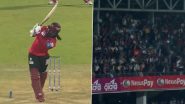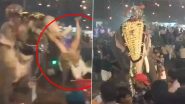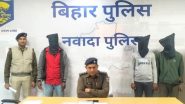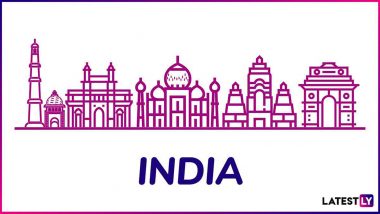New Delhi, Jul 27 (PTI) The Delhi High Court on Wednesday dismissed an appeal challenging a single judge's order quashing a plea seeking the agenda of the Supreme Court collegium's meeting on December 12, 2018 when certain decisions were purportedly taken on elevation of judges to the apex court.
A bench of Chief Justice Satish Chandra Sharma and Justice Subramonium Prasad said the order of the single judge on a petition by activist Anjali Bhardwaj did not require any interference.
Also Read | Initial Reports & Some Media Reports Indicate at SDPI &PFI Links. They’re Being … – Latest Tweet by ANI.
Bhardwaj's appeal was filed challenging the single judge's March 30 order by which it had dismissed her petition against the Central Information Commission's order rejecting an RTI appeal seeking the agenda of the Supreme Court collegium's meeting.
The single judge had said that in the absence of any formal resolution being adopted and signed by the members of the Supreme Court collegium for the said meeting, the authorities rightly took the position that there was no material that was liable to be disclosed.
The single judge had stated that the collegium is a multi-member body whose decisions stand embodied in resolutions which alone “represent the collective decision taken or the majoritarian view which prevailed and was adopted” and in the present instance, since the issues which arose for discussion remained unresolved or in an inchoate state, no formal resolution came to be drawn up.
The single judge had further said that the petitioner's submissions “addressed in the backdrop of certain newspaper reports are noticed only to be rejected” as such reports have no evidentiary value and it would be transgressing its limitations if cognisance were to be taken of such “unsubstantiated and unverified reports”.
Before the single judge, the petitioner had challenged the CIC's December 16, 2021 order by which her second appeal was dismissed and had sought a direction to the authorities to disclose the available information sought for under the February 26, 2019 RTI application.
The petition had said that on January 23, 2019, Justice Madan B Lokur, who was a part of the collegium meeting and retired on December 30, 2018, in an interview expressed his disappointment that the December 12, 2018 collegium resolution was not uploaded on the Supreme Court website.
According to former Chief Justice of India Ranjan Gogoi's autobiography 'Justice for the Judge', the names of Justice Pradeep Nandrajog, the then Chief Justice of the Rajasthan High Court, and Justice Rajendra Menon, the then Chief Justice of the Delhi High Court, had received nod for the elevation to the Supreme Court in the collegium meeting on December 12, 2018.
The matter allegedly got leaked after which the issue was kept in abeyance by Justice Gogoi till January, 2019 because of winter break which started on December 15, 2018, the book said.
In January 2019, a new collegium got constituted after the retirement of Justice Lokur.
The new collegium, in its resolution on January 10, 2019, did not clear the names of Justice Nandrajog and Justice Menon for elevation to the Supreme Court, according to the book.
The petition did not mention names of any judges whose names were allegedly cleared.
Initially, Bhardwaj had filed an RTI before the Supreme Court seeking copies of the agenda, decisions taken and resolutions passed in the December 12, 2018 meeting.
However, the Supreme Court Central Public Information Officer (CPIO) refused to provide the information and while disposing the appeal against the denial by the CPIO, the First Appellate Authority (FAA) had held that in view of the subsequent collegium resolution of January 10, 2019, it was clear that though certain decisions were taken in the collegium meeting of December 12, 2018, the required consultations could not be completed and no resolution was formally passed.
The court was further told that in the second appeal, the CIC also relied upon the January 10, 2019 resolution and held that the agenda of the collegium's December 12, 2018 meeting was clear from the subsequent resolution of January 10, 2019 and the copy of the decision and the resolution of December 2018 did not exist on record in terms of Section 2 (f) of the RTI Act and therefore, could not be supplied to the petitioner.
The petition had sought setting aside of the CIC order on grounds that the petitioner has asked for "a copy of the agenda" of the collegium meeting and not a summary or reference thereof.
(This is an unedited and auto-generated story from Syndicated News feed, LatestLY Staff may not have modified or edited the content body)













 Quickly
Quickly
















